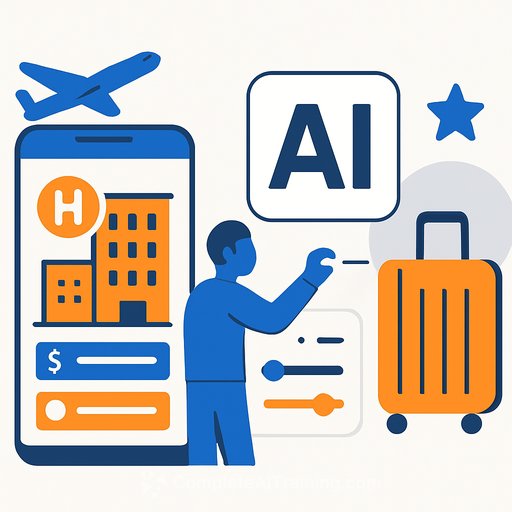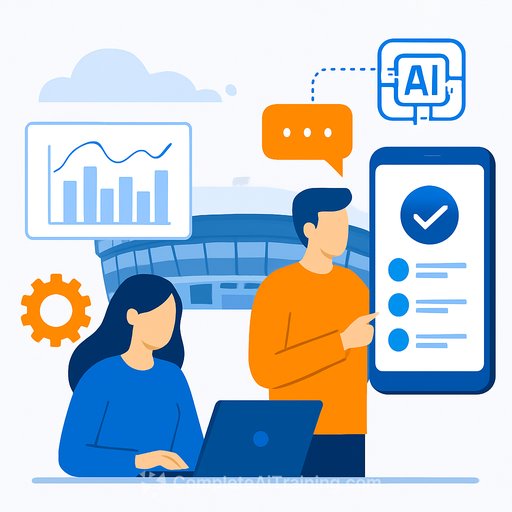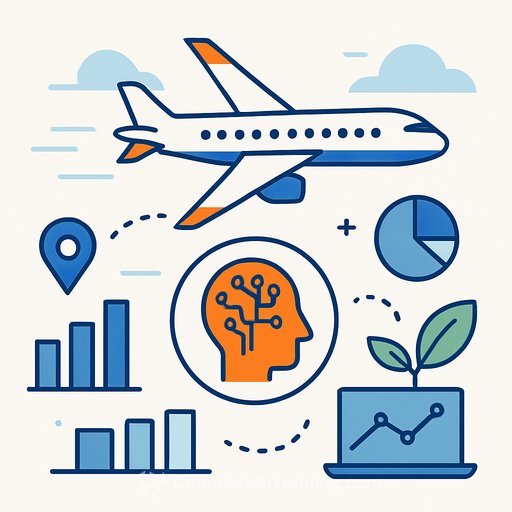Hotels are adopting airline-style pricing. Here's how to make it work for your property
Airlines taught guests to pick a base fare and layer in what they value. Hotels are moving the same way-unbundling rooms and selling extras like early check-in, pool access, pet kits, flowers, and in-room coffee bars for a prepaid fee.
Operators are also testing AI-driven bundles that package room features, amenities, and timing of offers to match a guest's intent. Done well, this adds high-margin revenue without bloating rates-or guest frustration.
Real examples already live
Columbia Hospitality has added optional upgrades in the booking path. At The Wren in Missoula, guests can pre-book a flower bouquet or a pour-over coffee station. In Walla Walla, extras include s'mores kits and chocolate boxes.
Wyndham Hotels launched "Wyndham Connect," a text-based channel to message guests pre-arrival with options like early check-in or food and beverage on arrival. As Scott Strickland, Wyndham's chief commercial officer, said: "The most successful hotels are those offering add-ons that truly enhance the experience at a price that makes sense for both sides."
ABTA reports a sharp uptick in travelers using AI for trip ideas, which lines up with what we're seeing: guests expect personalization. Just keep the experience grounded-AI suggestions need guardrails and human oversight.
What this means for revenue leaders
The play is simple: sell the room by need, then price the extras by desire. You protect base rates, grow RevPOR, and let guests build their own stay.
The risk is "junk fee" territory. Transparency and choice are non-negotiable. If it feels sneaky, it will backfire in reviews and repeat business.
Build your bundle strategy in four parts
- Inventory: List every sellable asset. Early check-in, late checkout, room location, view, balcony, premium linens, coffee gear, minibar credits, parking, spa access, pool daybeds, pet packs, kid kits, local experiences.
- Packaging: Sell à la carte and as themed bundles (e.g., "Trailhead Starter" with early check-in, pour-over kit, trail snacks; "Date Night" with flowers, chocolates, late checkout).
- Timing: Offer during booking, pre-arrival (T-5 to T-1 days), day-of arrival, and in-stay. Test which guests buy at which moment.
- Tech: You'll need PMS integration, payment on file, a rules engine for eligibility, messaging (email/SMS/WhatsApp), and basic personalization. If you add AI, start with recommendations, not autopilot.
Pricing playbook that won't trigger backlash
- Anchor each extra to a clear benefit and a cost (time saved, convenience, scarcity).
- Dynamic pricing by demand, day of week, and occupancy-within caps. Don't surge to absurd.
- Bundle discount 10-20% to increase attach rate, but protect margin.
- State the fee up front, show taxes/fees in the cart, and confirm everything via email/text.
- Have a clean refund/credit rule for undelivered add-ons (e.g., early check-in not available).
Guest messaging that converts
- 48-72 hours pre-arrival (SMS): "We can have you in your room by 1 pm for $25. Want us to set that up?"
- Morning of arrival (email): "Make tonight special: flowers and artisan chocolates waiting in your room-$39 bundle."
- During stay (SMS): "Pool daybed available from 11-3. Reserve now for $35 and skip the hunt for seats?"
Operations: make sure it actually happens
- Assign each add-on to a department with a cutoff time and fulfillment checklist.
- Auto-ticket upsells in your task system; avoid email silos.
- Keep a live inventory count (limited kits, daybeds, premium rooms) to prevent over-sell.
- Train front desk to recover gracefully if an item falls through (credit plus substitute).
Metrics to track weekly
- Attach rate by add-on, by channel, by timing.
- Incremental RevPOR and contribution margin (include cost of goods and labor).
- Cancellation/refund rate on add-ons and dispute rate.
- NPS/CSAT impact by guest segment. Watch reviews for "fees" vs "options."
Compliance and guest trust
Be clear, specific, and honest about what's included in base rates and what's extra. If you charge facility or resort fees, explain the value in plain language and avoid double-charging via add-ons.
AI can misfire with stale hours or closed venues. Verify local recs, and keep a human in the loop before sending automated suggestions. If you need inspiration data, pull from your own guest history first.
30-day rollout checklist
- Week 1: Pick 6-8 high-margin add-ons; define rules and stock; write copy; set refund policy.
- Week 2: Configure PMS + messaging; build booking and pre-arrival offers; QA payments and taxes.
- Week 3: Train teams; run a soft launch on direct bookings; monitor fulfillment.
- Week 4: Expand to all direct guests; A/B test prices and timing; start bundle experiments.
Tools and next steps
Look at your current stack first-your PMS, CRM, and messaging tool may already support pre-arrival offers. Wyndham's approach shows how simple SMS can drive take rate without a heavy lift. Learn more about their guest messaging strategy here: Wyndham Hotels & Resorts (corporate).
If your team needs a quick ramp on practical AI for guest comms and revenue ops, explore role-based training here: Complete AI Training - Courses by Job.
Bottom line
Unbundling gives guests control and gives you clean, incremental revenue. Start small, price fairly, fulfill flawlessly, and communicate like a human. The market will tell you what belongs in the bundle-and what should stay out.
Your membership also unlocks:






